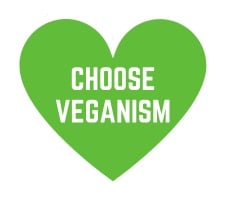In the United Kingdom, veganism continues to rise in popularity. An article by vegan online magazine Plant Based News shows that vegan adoption rates increased by 40% in 2020, with approximately 1.5 million Brits claiming to follow a vegan diet.

The Vegan Society attributes these numbers to the increasing accessibility of vegan products, as pioneered by popular companies like VBites and Beyond Meat. Today, people don’t have to go out of their way to find plant-based products.
Still, despite veganism’s newfound popularity, making a vegan grocery list can be a daunting task, especially if you’re just starting out. To help, we’ve put together a list of items all vegans need to look for when going grocery shopping.
Vegetables
- Potatoes
- Red onions
- Beetroot
- Carrots
- Squash
- Leafy greens
- Red cabbage
- Aubergine
When it comes to plant-based products, it’s always best to keep the colours on your plate varied. Many of the health benefits fruits and vegetables offer come from phytonutrients, which are the chemical compounds that give plants their colour.
Each colour group offers different benefits. Leafy greens, for example, contain chemicals like sulforaphane, isocyanate and indoles, which protect the body from cancer. On the other hand, reddish foods like beetroot and red onions contain carotenoid lycopene, which strengthens the body’s cardiovascular system.
Diversify the colours on your plate to ensure that your body gets a wide range of nutrients. Additionally, since you’re cutting down on animal products, you might have to increase your food consumption to get all the nutrients you need. Vegans are generally recommended to consume two and a half cups of vegetables each day.
Fruits
- Dates
- Apples
- Tomatoes
- Limes
- Pineapples
- Oranges
- Bananas
- Blueberries
- Grapes
Fruits are rich in fibre, antioxidants, vitamins, and minerals. Their sweetness and nutritional value make them great options for snack and dessert foods. You can also put fruits in smoothies or oatmeal to add some flavour. Like with vegetables, it’s a good idea to source fruits of varying colours. Vegans generally need to consume two cups of fruits each day.
Dairy Alternatives
- Soy milk
- Almond milk
- Coconut milk
- Oat milk
Dairy alternatives can supply you with valuable nutrients, such as calcium, protein and vitamin B12. A study by pediatric gastroenterologist Sarita Singhal revealed that the best alternative for cow’s milk is soy milk
Soy milk contains comparable amounts of protein, offering 3.4 grams of protein per 100 ml. However, the other dairy alternatives are also sufficiently nutritious. As long as you keep the rest of your diet balanced, any plant-based milk should suffice.
Meat Alternatives
- Tofu
- Tempeh
- Seitan
If you still miss meat dishes like hamburgers, you can try replacing meat with plant-based alternatives, such as tofu, tempeh, and seitan. Even if you don’t intend to use them as meat substitutes, these foods make excellent sources of protein. Tempeh, in particular, is also rich in iron, fibre, copper, and manganese.
However, it’s important to be wary of the meat substitutes available in the grocery store. Just because something is made of plants doesn’t mean it’s healthier than meat. This is one of the many topics addressed by the health publication SymptomFind. In one of their research-backed articles, they note that many products designed to emulate meat are manufactured with excessive amounts of sodium and saturated fats. Foods that don’t try to emulate meat as closely as possible generally go through less processing. It’s good practice to always check the nutritional information of any product you’re buying.
Pulses
- Beans
- Peas
- Lentils
As explained by the NHS, one of the best ways to get protein as a vegan is to stock your grocery cart with pulses. Pulses refer to any edible seed that grows in a pod. They contain little to no fat but are high in protein, fibre, and iron.
One major side effect of pulses is that the indigestible carbohydrates they contain can cause uncomfortable side effects on the bowels, such as excessive or foul-smelling flatulence. This is normal and healthy, and you shouldn’t let it dissuade you. People can build a tolerance for these symptoms by gradually increasing their intake.
Healthy Grains
- Buckwheat
- Brown Rice
- Quinoa
- Oats
The body appreciates a good complex carbohydrate. Whole grains contain many useful nutrients, including iron and B vitamins. Their high fibre content also helps you feel full and satisfied. That’s why foods like rice and wheat are staples across the world.
Try to avoid processed grains like white rice and white flour. When grains go through the refining process, they are often stripped of their useful nutrients. Though they still help you feel full, these grain products don’t offer as much nutritional value. The less processed a grain product is, the better.
Now that you’ve completed your grocery list, it’s time to navigate the fantastic world of meal preparation. And if you’re still unsure of what to buy, you can check out our many product reviews to find more information and recommendations.
